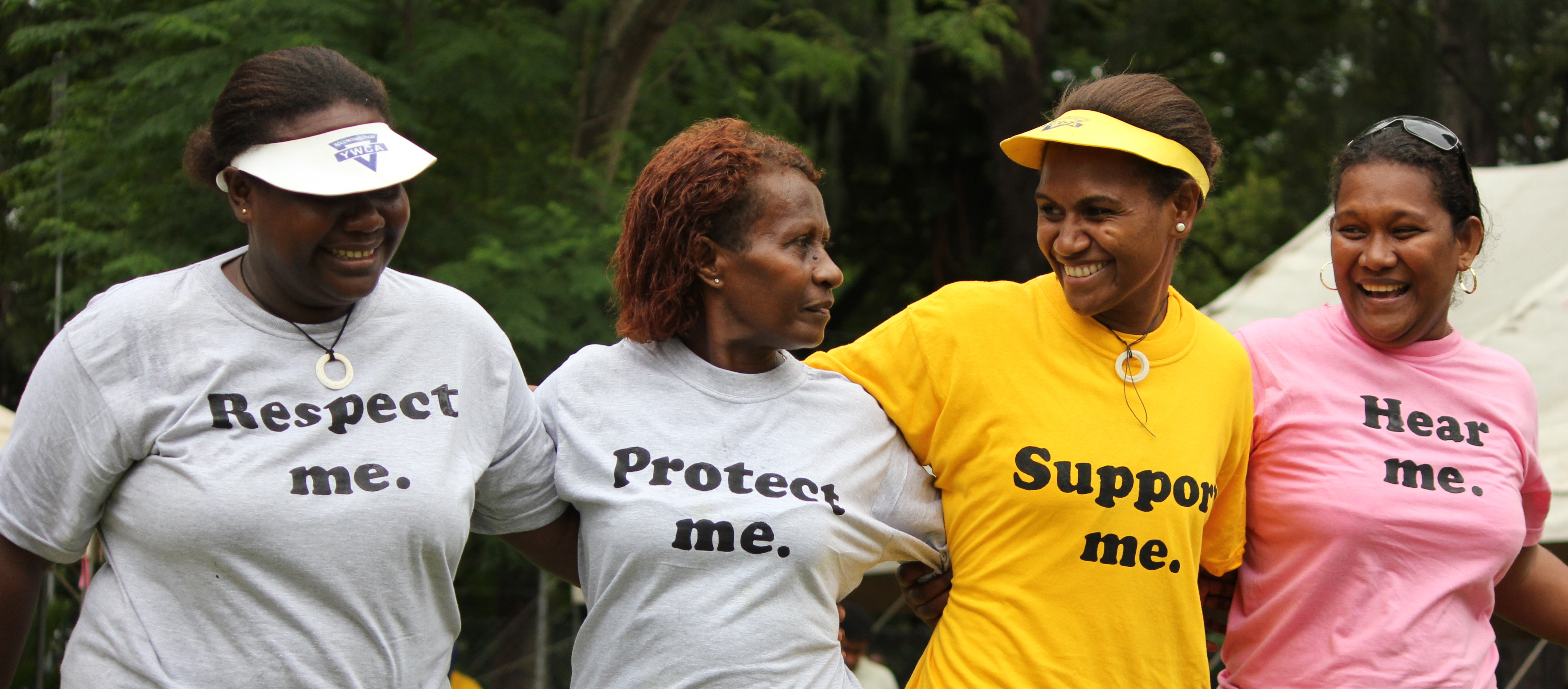
By Professor David Hudson and Dr Claire Mcloughlin, International Development Department
School of Government, University of Birmingham
Photo credits: Young Women’s Christian Association (YMCA) march in support of female rights during International Women’s Day in Honiara. Flickr (DFAT, Australia 2011)
These are troubling times for those studying the role of leadership in forging developmental progress, protecting civil society space, and saving the planet’s ecosystem. It is tempting to look for answers by focussing on the big men – for it is often men – running their countries.
For a long time, leadership studies have focussed on the properties and characteristics of individual leaders, viewing leadership as a particular set of traits or behaviours. But leaders cannot pursue real change without influencing people or persuading them to change their ideas or behaviours. Leadership is always, everywhere, an interaction between leaders and followers. As Victor Vroom and Arthur Jago have put it, ‘one thing that all leaders have in common is one or more followers. If no one is following, one cannot be leading.’
In our new DLP Foundational Paper, How is leadership understood in different contexts? we argue that we need to better understand this one vital but often overlooked ingredient: followers. Leadership needs to be seen as a process of interaction between leaders’ perceptions of what followers want, and followers’ perceptions of leaders’ legitimacy.
“What does it mean to be a leader in different places and times? How are leaders’ styles, characteristics and practices evaluated? How do history and culture affect perceptions of leadership?”
Immediately we are forced to face the fact that leadership looks, feels and works differently in different spaces and places. Different things are valued, and different things become synonymous with leadership. In Tonga, for example, the concept of Faka’apa’apa – loosely translated as “respect” – represents a kind of social contract. Faka’apa’apa values the collective good over the individual good, and equity over equality. In turn, this way of life permeates the conceptualisations of leadership. As Seu’ula Johansson-Fua describes: ‘leaders within a Tongan context are guided by the key principle of Va¯ – which is Faka’apa’apa. As leader, Faka’apa’apa as respect is given only after the staff have recognised key principles of feveitokai’aki (sharing, generosity), fe’ofa’aki (love, compassion), fetokoni’aki (helpfulness) and loto fakato¯ kilalo (humility) that are appropriately demonstrated by the leader through their relationships’.
Contrast this with Donald Trump’s leadership style. Strong, confident and brash. The self-styled ‘very stable genius’ has cultivated his followers’ loyalty by offering to protect them from the existential threat of Muslims and Mexican immigrants and a vision of America first. So why and how do these dynamics vary?
In the paper we set out four key questions to better understand and document the key factors that explain the variation in dynamics across contexts:
1. Dimensions of leadership assessment: On what basis do people evaluate leaders?
2. Channels of influence: How do people get their information to form these evaluations?
3. Follower identity: How are individuals’ evaluations of leaders affected by their social identity?
4. Context: How (and why) does this evaluation vary across different contexts, times and spaces?
We used these questions to develop a framework to help organise thinking and analysis, shown below. There is no particular start or endpoint along this continuous cycle. Indeed, for the process of leadership to begin it doesn’t even necessarily require leaders – leaders may emerge from the coalescence of social movements, or grievances, or organisations coming together.

This is a very political process, which is constrained by inequalities of power, voice and access. Followers can be anything from passive bystanders to activists and diehard supporters. Citizens rarely have perfect information about the actions of their leaders. Even if they do, the environment for freedom of expression varies significantly. The result is that people may have more or less agency to act on their perceptions or to hold leaders to account for their actions, in any given setting. Likewise, political culture, traditions and norms dictate the power of different groups of followers, and therefore the likelihood of leaders being responsive to them. But these are all empirical questions that the framework helps make explicit.
So what? Why does this matter? We conclude the paper by setting out a series of implications for development policy and practice. For example, for external interventions to have a realistic and grounded understanding of when a leader’s identity trumps their performance in the assessment of their worthiness of being followed – and not assume improvements in service delivery are sufficient. Or to understand how leadership development programmes can adapt to local cultures, values and ideas, or why it is important to support the cultural agility of future leaders, to enable them to bridge groups of followers.
Ultimately, the relationship between followers and leaders is vital for enabling leaders to solve some of the most complex, cross-cutting problems at the heart of development.
‘Build a Leader Workshop’ is part of the University of Birmingham’s Future of Society festival, hosting a variety of free events from 2-9 November to show how pioneering social, economic and political research impacts on everyday life.
If you would like to be part of developing these ideas further, join us at the Build-a-leader workshop on Thursday 7 November, 17:30 – 19:30 at The Prince’s Trust, Digbeth, Birmingham or Tweet us @DLProg. We will be asking what do people want from their civic leaders in Birmingham? People similar to themselves or those seen as experts? Individuals who put values first or those who get things done? Young or old? Female or male?
More details and register here.
Find out more about the Developmental Leadership Program (DLP) here.
